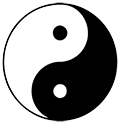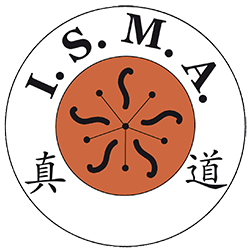Influences and Philosophies of our Self-Defence Classes
In ancient China, several different philosophies influenced WyngTjun. Buddhism, Confucianism and Taoism influenced it the most. We integrate all three philosophies into our training programs.

Confucianism at the I.S.M.A.
There are several elements of confucianism evident in WyngTjun classes at I.S.M.A., such as greeting and obeisance (bowing). Students learn from their elders, whom they call Si-Hing, Si-Fu or Si-Gung. As teachers, they are respected as people who have already followed their path. Through this respectful behaviour, the student in turn earns the respect of their teacher. Mutual respect and regard are fundamental elements of learning martial arts at the I.S.M.A..
The main goal of Confucianism
The ultimate goal of Confucianism is to retract from the political and societal chaos and go back to classical virtues.
- Humanity
- Integrity
- Conscientiousness
- Honesty
- Mutuaity
- Loyalty
- Filial piety
- Preservation of decency and customs

Taoism at the I.S.M.A.
There are different spellings for Taoism, but the meaning is always the same: “lessons of the path”. Taoism is a Chinese philosophy and is regarded as China’s domestic and authentic religion.
Laozi was a legendary Chinese philosopher, who is said to have lived around 600 BC. Legend has it that Laozi lived beyond 160 years, some sources even say 200 years. He is said to have lived such a long life because of his perfection of Tao. Taoism is thus a very old philosophy, which is easier to live by than describe.
If we talk about earthly components, there are always two (above/below, left/right, man/woman). However, when we talk about the sublime (spiritual) matters, there are always three:
- here, there and inbetween
- subconsciousness, awareness and consciousness
- the opponent, myself and the space in between
According to these teachings, the last truth is one and acts spontaneously, without influence of the human mind. Wu Wei did not mean, however, that we do not react, but rather that we act spontaneously and harmonise with the Tao when necessary. -It is a state of inner silence which performs the right action at the right time and without effort of the will.
To achieve this, we try to empty the mind of all thoughts and emotions. If the mind is filled with thoughts whilst learning, it will not be able to take in any information. If it is filled with struggles, it cannot act in the sense of Wu Wei.
Forces
- Balance of yin and yang energy; agonist and antagonist, for example, the muscle that is disturbing the movement must be relaxed and the other correctly controlled.
- Not working against the power of the other; They cannot act on each other. This means you have to work with the twist and step technique.
- Spring principle, if there is a force, there is always a counterforce. You have to recharge yourself with the energy of your opponent. The tree that weighs in the wind.
- Energy bundled. Unity lies between the own strength and that of the opponent.
Combat Principles
- Water flows from the gravitational force of the sea. It is always in motion.
- When before an obstacle, it accumulates and sticks to it.
- If water rests on a rock, it adapts to it and adapts itself to any form and stays thereafter.
- If the gravitational force of the stone does not suffice to remain in its place, the water follows or takes it with it.

Buddhism in the I.S.M.A.
Lumbini, today Rummindai, is the birthplace of the Buddha, Siddhartha Gotama. Gotama, or Gautama, was not an individual name of the Buddha, but, like our family names, attributed his affiliation to the Gotama family, whose relatives could be addressed in this way.
According to tradition, Gotama came from an aristocracy of the North Indian people of Shakya. His parents, King Shuddhodana and his wife Mahamaya, belonged to a Kshatriya caste. Kshatriya (“warrior”) is the name given to the members of the second class, mainly warriors, princes and kings.
In its original form, Buddhism resembled more of a doctrine or philosophy than a religion in Western understanding.
Siddhartha Gotama is called a “historical Buddha” to distinguish it from mythical Buddha figures that are not historically attested. “Buddha” (“Awakened”) is a title of honor, referring to an experience called Bodhi (“Awakening”).
- Making one by one, one has more time and attention for the details
- If you initiate a defense treatment at the wrong time, you are hit
- If you apply the non-adapted technique at the right moment, you are also hit
That is why we are taking the focus on form training. The concentration is directed inwards to do the right thing at the right time for the decisive moment. It is about being here and now, absolutely present!


